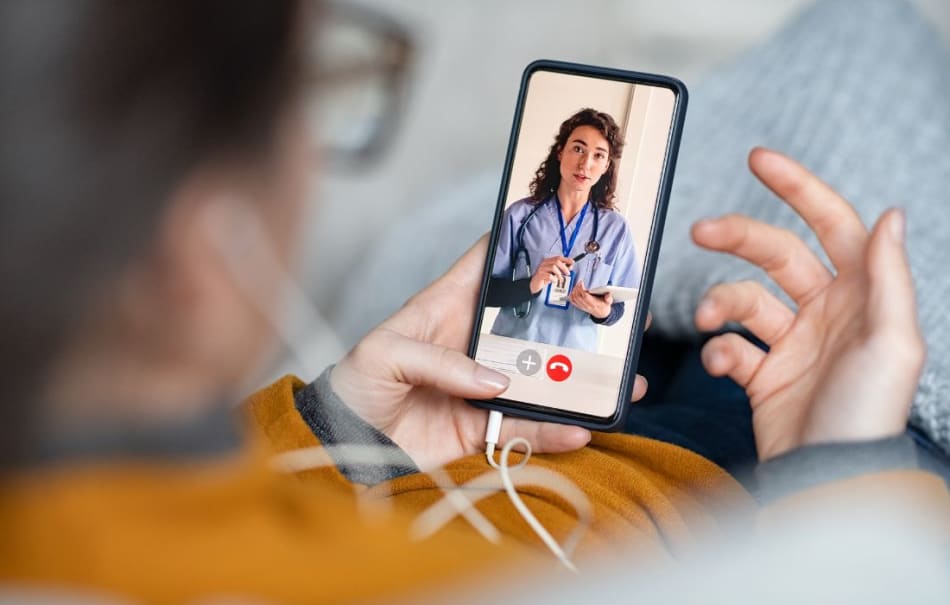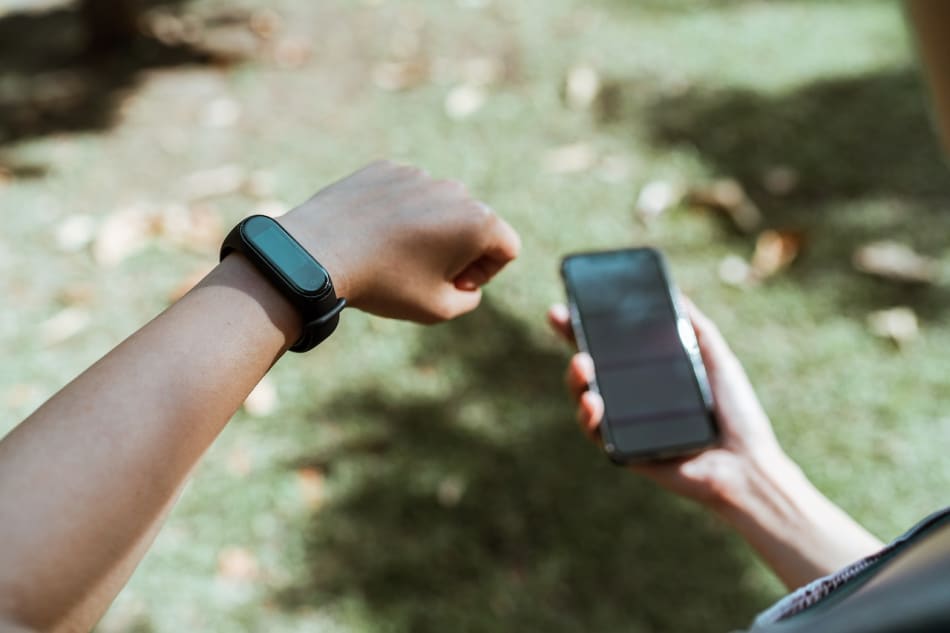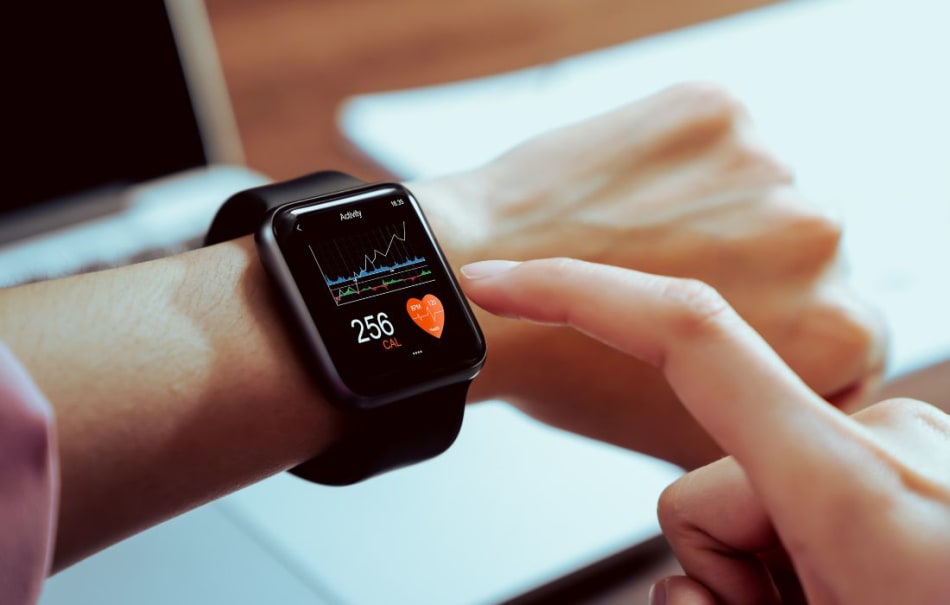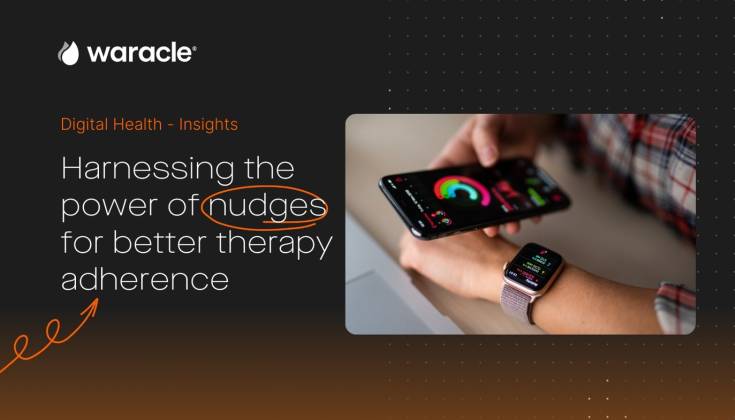




Diverse People, Diverse Perspectives
Waracle is an inclusive, inspiring & developmental home to the most talented and diverse people in our industry. The perspectives offered in our insights represent the views and opinions of the individual authors and not necessarily an official position of Waracle.
In early 2022, as the world escaped the confines of lockdown and the harsh realities of a stretched health system began to become apparent, Waracle hosted a series of webinars with experts in their field to debate the impact of those realities and ways that digital solutions might ease some of the pressure.
In a session focused on “Empowering Patients,” we were delighted to welcome Dr Clara Doran, founder and Chief Nogg of the startup Noggin Braincare, to discuss her perspectives as a General Practitioner and as a business owner in the supplementation & proactive wellness space.
Noggin was created with a focus on the benefits of Nootropics as part of a programme of care related to our most complex organ – the brain, Dr. Doran saw the potential of this space after completing her own learning and self-help journey after a surprise diagnosis.
This led us to a fascinating conversation about what empowerment means and how patients can become more actively involved in their own health journeys.

“For me, empowerment refers to having a sense of autonomy regarding one’s health and the ability to make informed decisions,” said Clara, who, before setting up her current business, was a GP herself.
“There was a clear divide between doctors and patients in the past, with doctors providing information and patients simply following it. However, doctor-patient relationships have now evolved into a partnership. Patients are becoming more involved, and rightfully so, in decision-making regarding their health.”
But what of people who wouldn’t consider themselves “patients”, for whom staying away from the GP and reactive healthcare might be a better form of empowerment or partnership with stretched healthcare providers?
“Empowerment means different things at different times, depending on the individual’s health status,” Clara continued.
“For diagnoses-free patients, empowerment may mean being proactive in maintaining good health and knowing their normal. On the other hand, for those with a chronic disease, empowerment may mean managing their symptoms and results.
“For those diagnosis-free individuals, it’s crucial to understand what is normal for them and seek help when things become abnormal. In recent years, with the changing healthcare landscape, people have had to manage their health differently, with both benefits and drawbacks. It’s important to empower both groups and help them understand when and what to seek help for.”
But during the pandemic, thanks to the advent of domestic lateral flow tests and a scale of self-diagnosis never before dreamed about, some clear patterns were established, with 18% of the population routinely testing themselves without a specific reason. But given tests were freely available, there is the potential for a digital divide where Covid has set expectations, but many may need help to afford those same proactive habits in other areas of their health. For Clara, it goes back to that doctor-patient relationship and finding the best balance.
“Communication plays a crucial role in the doctor-patient partnership, she continued.
“With patients utilising health apps and data, it’s vital for both the patient and doctor to communicate effectively about the results and how they fit into the bigger picture of the patient’s health.
“While most doctors are open to this, there are practical challenges such as time constraints and understanding the results from different sources and companies. There’s also a generational aspect, with elderly patients who may prefer a more paternalistic approach from their doctor.
Finding the right balance for different groups and individuals is part of the challenge in creating effective doctor-patient partnerships.”
But what of the primary care system, upended over the past few years by a once-in-a-lifetime crisis – has there been any lasting change in behaviours and provision? Has technology become embedded more quickly than it might have done, with the potential to gain benefits from the fast-growing digital health ecosystem?

“The shift towards digital health records and GP practices has been significant in recent years. The speaker recalls starting their work as a locum and encountering practices with both traditional paper records and digital records. However, now, digitalisation is the norm.
“Digitalisation is crucial for the future of healthcare and will have a lasting impact. Patients’ access to their health records is crucial to this digitalisation and is becoming increasingly prevalent.”
“But it’s also been challenging, with pros and cons. The pandemic has forced GP practices to reevaluate how they offer services and explore new ways of delivering care. This has created an opportunity for healthcare providers to approach things differently, which can be challenging within a set system.
“While digitalisation has improved access to healthcare, some still need to catch up due to social or disability-related circumstances. It’s important to be mindful of this and strive to find solutions that work for as many people as possible while caring for those in between.”
The rise of digital health has also led to a predictable growth in online sources of information – and disinformation – which could prove to be a hindrance or even dangerous without some more formal guidance. And if digital sources became the primary source of information or even monitoring health, a generational gap might develop in adoption.
However, whilst Clara feels this is a concern, the benefit outweighs the risk.
“Information is the key to empowerment and many other things, and the internet has offered a wealth of reliable information sources, such as NHS websites and the NHS app. This has been transformative in recent years.
While access remains an issue, particularly for those who are socially deprived or have disabilities, the internet and its offerings are still a net positive. There is ongoing work to regulate and disseminate information effectively, but the internet has proven crucial in disseminating public health information during the COVID-19 pandemic. Despite some challenges, the benefits of the internet and its offerings outweigh the problems.
But there is a generation gap regarding technology and its usage, with individuals having varying levels of comfort and familiarity. The last few years have shown how the internet and devices have been crucial for maintaining social contact, especially for isolated individuals and the elderly.
Health providers have an opportunity to make their applications attractive and user-friendly for people of all ages, particularly the older generation. Some people, particularly the elderly, may not be interested, but many are in between and would be more involved with technology if it is accurate, robust, and targeted towards them.
Digital companies have successfully made technology fun and engaging, and health companies can take a similar approach. Health companies can encourage greater usage and engagement with technology by targeting their offerings appropriately and making them attractive to the intended age group.”
And once engaged, whichever way it is achieved, the opportunity is then to make sure health consumers are well-informed and able to judge their next steps. Given her interest in promoting personal well-being, getting that information right is seen as critical.
“Making information available to people in different ways is crucial. People often hesitate to ask for additional information from someone other than their usual doctor. It’s important to reassure people that it’s okay to do so and that their health is the top priority.
“The microbiome and new topics in health care are still evolving, and there is much room for growth regarding available information. As a practitioner, I have learned the importance of these topics through my own investigation and study. The availability of information in these areas has increased in recent years and will continue to do so.
“I believe in the power of simple things, such as hydration, breathing, mindfulness activities, sleep, and other everyday practices that can greatly impact well-being, stress management, mental health, and managing other diseases and symptoms. These simple practices are easy to incorporate into daily life and can be done with minimal expense or time investment.
“The future looks bright for disseminating this information, and regulation is important to ensure accuracy. As research grows, it will become more routine and widely accepted. It’s a fascinating area, and there is much to be learned in the coming years.”
“So finding information has improved, but what about the return path, where patients – often with expensive hardware on their wrists or in their pockets – can provide important information on their baseline health but may choose not to?
“In essence, recording health information can have many benefits, but it is a challenging task. Compared to social media or tech companies, there is less excitement associated with reporting health information. Health and illness are not topics that people often want to think about, and they usually visit doctors only when things are bad.
“However, recording information can help with the prevention and early management of illnesses. But it is difficult, as people are often reluctant to talk about their health. Therefore, it is important to continue breaking down barriers and encouraging open communication in this area.”

“The use of wearable devices and health apps is fascinating and has the potential to benefit individuals in their health journey greatly. The ability to monitor things like heart rate or sleep patterns can provide valuable insights and start important conversations about health and wellness.
“Additionally, using personalised exercise apps can be extremely helpful for motivation and achieving fitness goals. However, it’s important to note that the reliability of these devices and apps still needs to be determined, and not everyone may have the ability or desire to use them. Nevertheless, the potential benefits are undeniable, and the future of health technology is certainly exciting.
“I believe people will become more comfortable with it as we continue to see the benefits of recording and sharing data and information. The recent example of recording lateral flow results is just one example of how we are learning to do so for the greater good. However, there is still a sense of unease among some people when it comes to sharing personal information. But as the reliability and security of the platforms improve, I think this discomfort will gradually decrease.”
And if Clara could invent a new device tomorrow that would help with a particular area of interest, what would it help to measure and improve?
“Hydration is indeed an important factor for our overall health and well-being. It’s amazing how such a simple thing as drinking enough water can profoundly impact our physical and mental health.
“Having an app or device that can track and remind us about our hydration levels could be helpful for many people, especially those who need to remember about drinking water regularly. Additionally, tracking the impact of hydration on our mood, performance, and concentration could be interesting and help people understand the importance of staying hydrated.”
In closing, we asked Clara what the future holds for digital healthcare, given everything discussed thus far.
“Personalisation is the future of healthcare,” Clara responded.
“Each person’s needs and preferences regarding their health and well-being must be considered. This way, they can receive the care and support best suited to them, leading to better outcomes and improved quality of life.”
—
Our teams, here at Waracle, would agree with that closing sentiment and strive to work with partners developing digital solutions to unlock that patient improvement. If you have ideas or services where we can apply our experience to improve or accelerate those outcomes, please just get in touch.
Authors
Noggin
Managing Director - Studios
Related

Article • 30 July 2024
LLMs in Healthcare Diagnostics

Article • 29 May 2024
Digi tech Pharma & AI conference – the top 7 themes and takeaways



